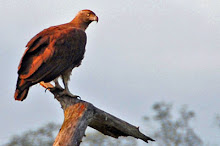Talk@LSE- The Economics of Ecosystems and Biodiversity : Ending the Economic Invisibility of Nature
The recent talk at London School of Economics,
"The Economics of Ecosystems and Biodiversity : Ending the Economic Invisibility of Nature",
by economist Pavan Sukhdev, head of UN Environment Programme's Green Economy Initiative,
and Study Leader of TEEB .
Prior to his work for TEEB and UNEP, he was Head of Deutsche Bank's Global Markets Business in India
and a founding member of the Green Indian States Trust (GIST).
The study is led by Pavan Sukhdev, a senior banker from Deutsche Bank, and founder-director of the green accounting project “GIST” (Green Indian States Trusthttp://www.gistindia.org/ ) in India. Mr. Sukhdev is currently on secondment with UNEP. This proposal was endorsed by G8+5 leaders at the Heiligendamm Summit on 6-8 June 2007, and work on the TEEB (The Economics of Ecosystems and Biodiversity) study began.
The Economics of Ecosystems and Biodiversity (TEEB) study is a major international initiative to draw attention to the global economic benefits of biodiversity, to highlight the growing costs of biodiversity loss and ecosystem degradation, and to draw together expertise from the fields of science, economics and policy to enable practical actions moving forward.
The TEEB study is being led by UNEP with financial support from the European Commission, German Federal Ministry for the Environment, and the UK Department for Environment, Food and Rural Affairs.
The study is led by Pavan Sukhdev, a senior banker from Deutsche Bank, and founder-director of the green accounting project “GIST” (Green Indian States Trusthttp://www.gistindia.org/ ) in India. Mr. Sukhdev is currently on secondment with UNEP. This proposal was endorsed by G8+5 leaders at the Heiligendamm Summit on 6-8 June 2007, and work on the TEEB (The Economics of Ecosystems and Biodiversity) study began.
[45min talk. 1hr 30min, including Q&A ]
If interested, the slides are available here.
I think he is heading very important initiatives and studies very relevant in the context of Sustainable Development.
This talk was held by invitation from LSE's Grantham Research Institute for Climate Change and the Environment,
chaired by Nicholas Stern, whose famous ' Stern Review on the Economics of Climate Change' of 2006 discusses the effect of global warming on the world economy, the most widely known and discussed report of its kind.
Labels: Conservation, Economics, Nature

